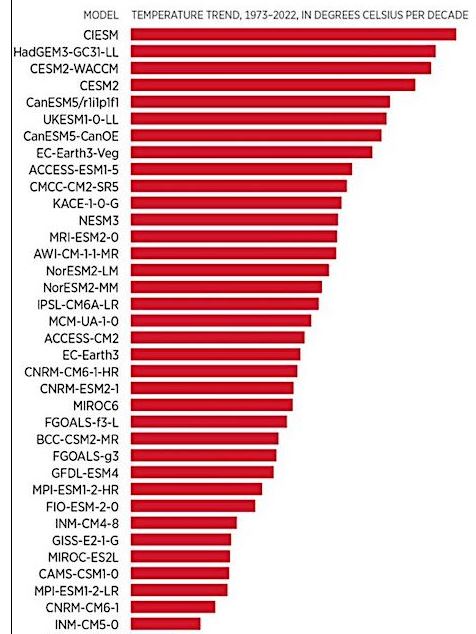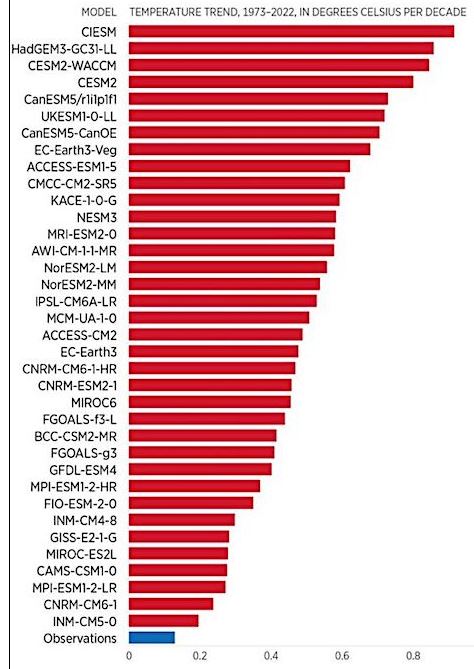I had a quick chuckle at this one:
Instead of essentially requiring automakers to rapidly ramp up sales of electric vehicles over the next few years, the administration would give car manufacturers more time, with a sharp increase in sales not required until after 2030, these people said. They asked to remain anonymous because the regulation has not been finalized. The administration plans to publish the final rule by early spring.
The change comes as President Biden faces intense crosswinds as he runs for re-election while trying to confront climate change. He is aiming to cut carbon dioxide emissions from gasoline-powered vehicles, which make up the largest single source of greenhouse gases emitted by the United States.
At the same time, Mr. Biden needs cooperation from the auto industry and political support from the unionized auto workers who backed him in 2020 but now worry that an abrupt transition to electric vehicles would cost jobs.
Yeah, not to mention the impossibility of getting a huge number of Americans to give up their beloved and reliable cars, trucks and SUVs for impractical and unreliable Duracell runarounds.
The decision was taken mainly because consumer demand for EVs has been lower than expected, and various major car manufacturers announced disappointing results in their recent annual reports.
“Lower than expected”, and shrinking as people who aren’t interested in virtue-signaling decide that, well, fuckem.
There are, of course, a variety of reasons for the drastic underperformance of EVs, but perhaps the greatest issue is that they are still working out as more expensive than traditional gas-powered cars. There is also an increasing body of evidence that they are not so environmentally friendly as their proponents would like us to think.
Not to mention that there are only a tiny number of charging points across the vast expanse of the U.S.A., and not much chance of their number growing at a rate which would make everyone’s life easier.
But we all know that, Here’s the part which made me really chuckle:
It is not all doom and gloom for the EV industry, though, as Elon Musk’s Tesla continues to go from strength to strength. Yet Musk’s recent embrace of the anti-Biden agenda has unfortunately made him persona non grata within the White House. Given the petty and vindictive nature of the Democratic establishment, don’t be surprised if Tesla’s famously generous government subsidies soon vanish into thin air.
Yeah, just wait till prospective buyers of EVs discover that the true price of a sub-compact Tesla is really north of $100,000. The “thin air” will also contain buyer demand.








